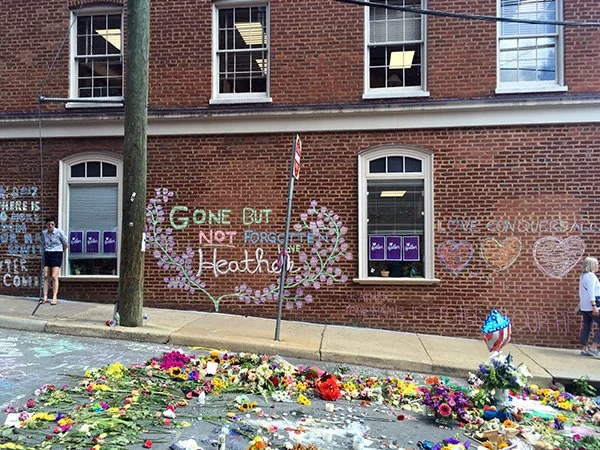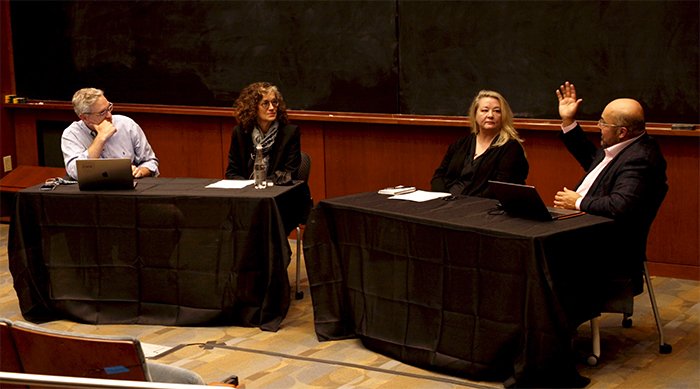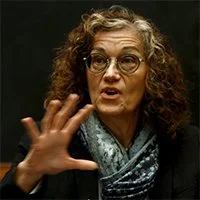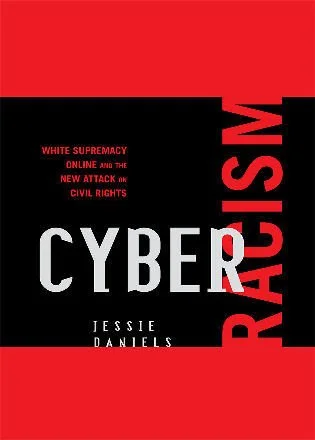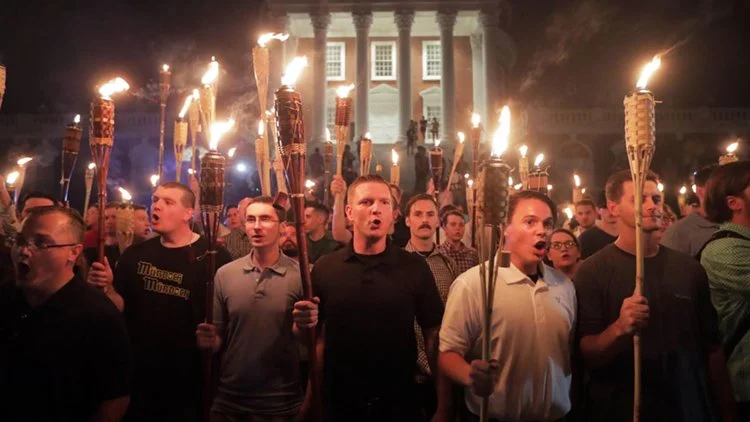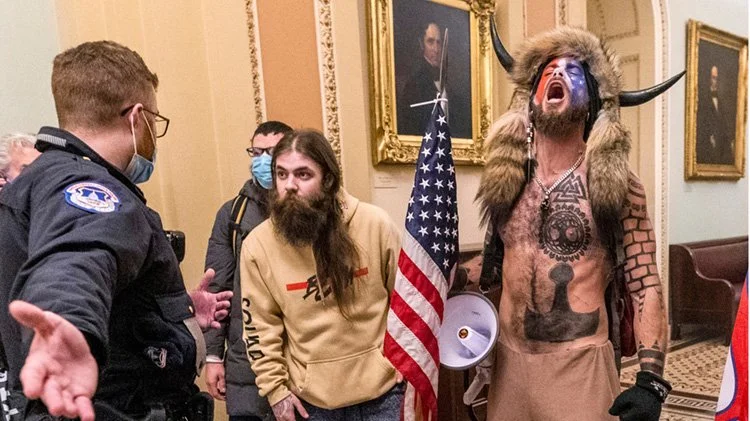Hot Spots, Part I - #Charlottesville
White Power is on trial in our college town. So are toxic media and the limits of free speech.
NEWS UPDATE
The week after we published this show, the jury in Sines v. Kessler found the defendants, all leaders in the ”Unite the Right“ rally in Charlottesville in August 2017, liable for conspiracy under state law. The victims were awarded more than $25 million in damages. Read a statement about the verdict from Integrity First for America, which represented the plaintiffs. They will seek a new trial on the federal charges in the case, over which the jury deadlocked. And CNN has this breakdown of the jury’s findings.
Read
Four years after far-right demonstrators came to Charlottesville, Va., victims of the mayhem are suing the rally’s organizers. At the core of their federal lawsuit is the 19th-century KKK Act — and thousands of texts and social media posts shared on the dark web. Earlier this month two media experts joined Will and Siva for a conversation about the trial, taped live just a mile from the courthouse where jurors are weighing the facts. This time on the show, we’re featuring an edited version of that episode, the first in our series on democracy hot spots.
Aniko Bodroghkozy, a media historian, finds echoes of the “Unite the Right” movement’s symbols and stage-setting tactics in the most unlikely of places: the civil rights struggle of the 1960s. Her argument suggests that countering contemporary fascism — and the sort of unchallenged extremism on display last January in Washington — requires an equally savvy use of the media by progressive activists. Plus: never ceding the public sphere to neo-Nazis.
But surely it also means democracies need to do a better job of curtailing violent extremism and racial hatred on the internet, Jessie Daniels argues. A Hunter College sociologist, Daniels says we can’t trust corporate leaders to regulate themselves. (Just consider the recent news of Facebook’s profit-pumping outrage algorithms.) Beyond that, she says, education is key. Racism and xenophobia are nothing new in American history; indeed they are deeply embedded in the country’s founding and history. If Americans really want to build a multiracial democracy with equal opportunity, Daniels suggests, they must reshape public discourse around race and class, and rewrite the nation’s shared narratives.
Meet
Aniko Bodroghkozy is a professor of media studies and one a founding member of the media studies department at the University of Virginia. She specializes in American television, social-change movements in the 1960s and the development of TV news. She is the author of Equal Time: Television and the Civil Rights Movement (University of Illinois Press, 2012), Groove Tube: Sixties Television and the Youth Rebellion (Duke University Press, 2001). Bodroghkozy’s forthcoming book is #Charlottesville: Media and White Supremacy from Civil Rights to Unite the Right; it explores the 2017 “summer of hate” in comparison with the civil rights era’s two major media moments. Follow Bodroghkozy on Twitter @ABodroghkozy.
Jessie Daniels has been tracking racism online since the 1990s. She is a faculty associate at the Harvard Berkman Klein Center and a professor of sociology at the City University of New York’s Hunter College. Her new book is Nice White Ladies: The Truth about White Supremacy, Our Role in It, and How We Can Help Dismantle It (Seal Press, 2021). Daniels is also the author of White Lies: Race, Class, Gender and Sexuality in White Supremacist Discourse (Routledge, 1997), Cyber Racism: White Supremacy Online and the New Attack on Civil Rights (Rowman & Littlefield, 2009). Follow Daniels on Twitter @JessieNYC.
In her books Groove Tube and Equal Time, Bodroghkozy explores how groups advocating for social change used a changing media landscape to their advantage.
In remembrance of the civil rights icon John Lewis, she wrote that the events of Bloody Sunday at the Edmund Pettus Bridge in Selma, Ala., in 1965, galvanized the country with images of white supremacist terror.
In a recent reflection on Bob Dylan’s release of “Murder Most Foul,” a 17-minute song about the killing of John F. Kennedy, Bodroghkozy unearthed poignant resonances between Americans’ experience of the coronavirus pandemic and their reaction to JFK’s death.
It’s hard to ignore that the White Power movement is marked by a culture of toxic masculinity. But in Nice White Ladies, Daniels that well-meaning women also unwittingly feed into white supremacy.
Daniels was among the first scholars to consider how white nationalist ideology circulated readily on this new thing called the internet. Cyber Racism shows how bigotry jumped from the print media to the web. Read more from her research on how tech platforms fed into the rise of the alt-right.
Learn
Defendants in the “Unite the Right” lawsuit, Sines v. Kessler, deny there was a conspiracy, say they acted in self-defense, and justify whatever violence they committed as self-defense. Read this breakdown of the case, from the BBC.
Integrity First for America is leading the lawsuit on behalf of the counterprotestors who were injured and traumatized on August 11 and 12, 2017. The IFA says a primary objective of the case is to bankrupt white supremacist leaders and organizations.
Attorneys for the plaintiffs this week presented evidence in court suggesting that Jason Kessler, the lead organizer of the rally, told supporters to mislead the police about the size of the crowds they expected.
Marissa Blair took the stand to recall the deadly car attack that killed her friend Heather Heyer and injured her fiancé, Marcus Martin. Martin pushed Blair out of the way of the muscle car driven by neo-Nazi James Alex Fields before being thrown over it. Blair and Martin eventually married, in 2018, but the physical and emotional scars of that day proved too great, and the marriage fell apart.
Integrity First for America is leading the lawsuit on behalf of the counterprotestors who were injured and traumatized on August 11 and 12, 2017. The IFA says a primary objective of the case is to bankrupt white supremacist leaders and organizations.
Fields, now 24, was convicted of murder in December 2018 and is serving a life sentence in Virginia. A state court has just denied his appeal.
Hate speech in the virtual world is often fueled by algorithms that reinforce and amplify biases, reproducing a racial hierarchy embedded in the social world — what Ruha Benjamin calls the new “Jim Code.” In Algorithms of Oppression, Safiya Umoja Nobel shows, for example, how disparaging comments about women of color appear readily in search results that purport to be technologically neutral.
Integrity First for America is leading the lawsuit on behalf of the counterprotestors who were injured and traumatized on August 11 and 12, 2017. The IFA says a primary objective of the case is to bankrupt white supremacist leaders and organizations.
The public has been able to listen in on Sines v. Kessler through a phone-conference system run by the court. Hundreds have joined each day to hear the case, as several white nationalists defend themselves in the proceedings and cross-examine the witnesses who are suing them. The Washington Post reported last week that alt-right followers are using this courtroom drama for recruitment and self-promotion.
And the day we posted this episode, Neil MacFarquhar had this in-depth story in The New York Times —about four years of political strife and soul-searching in Charlottesville in the wake of the Unite the Right rally.
About This Series
This month and next we’re rounding out Season Three with a tour of democracy hot spots both abroad and close to home. We begin the series with this episode’s examination of the effort in Charlottesville, Va., to hold far-right extremists to account for the violence they brought to our town in the “summer of hate.” Join us soon for some incisive visits to Cuba, Myanmar and Eastern Europe.


